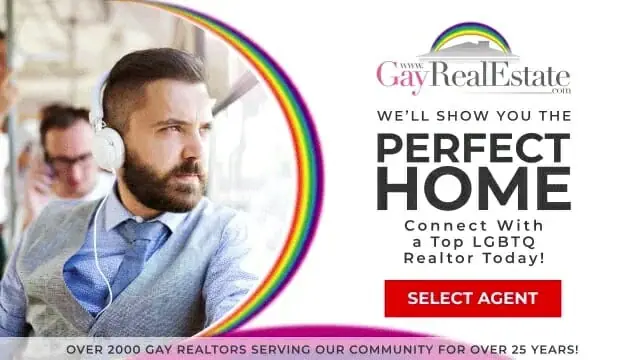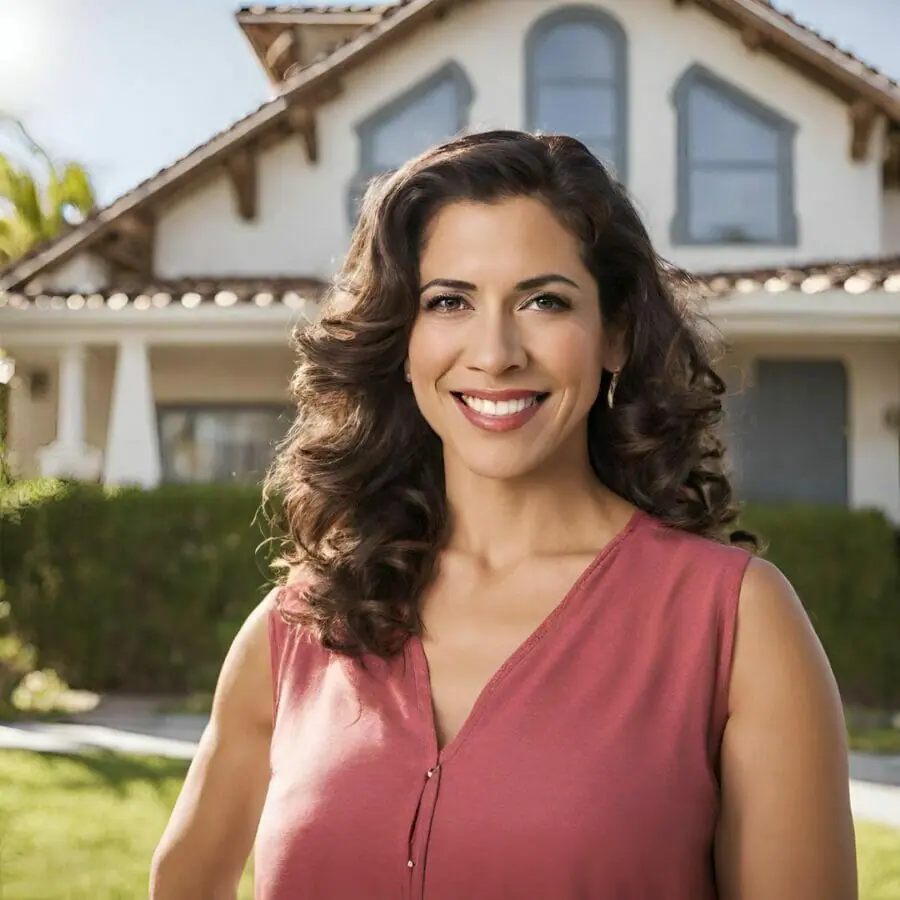One of the most common thoughts you might have before relocating anywhere is how accepting the locals are towards the LGBTQ+ lifestyle. It is a very valid concern and something that sadly still needs to be considered in this day and age.
To help queer folks who are considering moving to Gay Texas, we have put together this guide from experts on the ground, considering the pros and cons of life here, discussing LGBT rights in Texas and whether Texas embraces our community.
We also take a look at the most gay-friendly cities in Texas and LGBT community organizations in Texas that you should be aware of!
LGBT rights in Texas have been the subject of ongoing political and legal debate. Texas has a conservative culture, and some state laws and policies have been criticized for being discriminatory toward the LGBTQ+ community. For example, Texas does not have state-wide protections against discrimination on the basis of sexual orientation or gender identity and has not passed any laws to prohibit conversion therapy for minors.
Additionally, the state has had a long-standing ban on same-sex marriage, which was only lifted in 2015 following the Supreme Court’s decision in Obergefell v. Hodges.
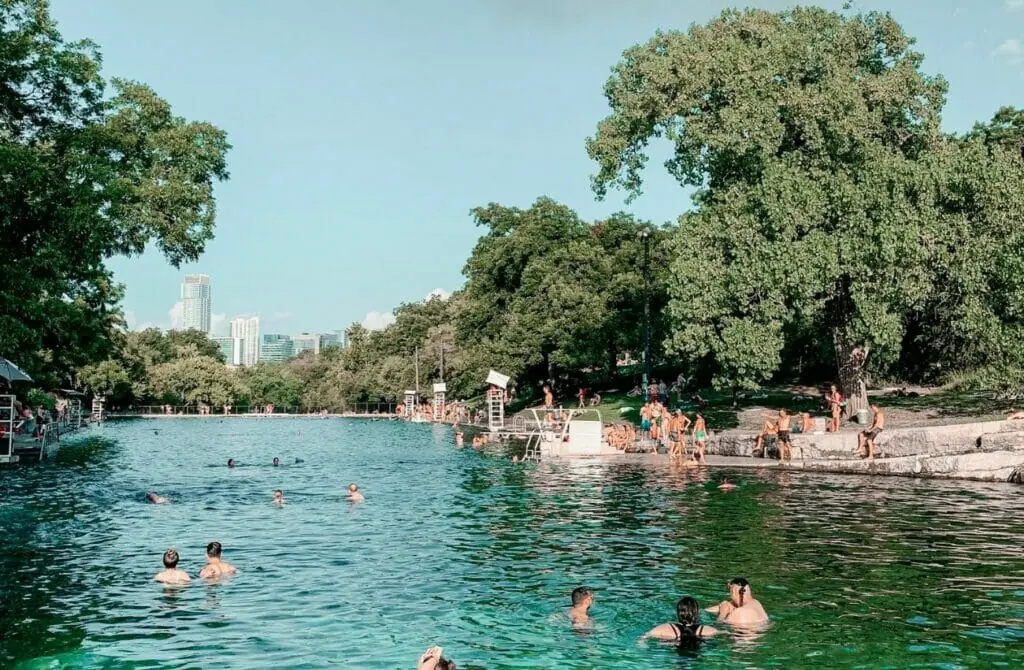
Yet in spite of this (or maybe because of it), the Lone Star State is also home to one of the most diverse and politically active LGBTQ+ populations in the country, with cities like Austin, Dallas, Houston, and San Antonio receiving acclaim for their welcoming and inclusive atmospheres. LGBTQ+ community and provide anti-discrimination protections.
These cities offer a range of events, including pride festivals, dynamic art scenes, and numerous clubs catering to the LGBTQ+ community. Some other more liberal cities in Texas have also passed their own ordinances to protect the rights of LGBT people; however, in many other areas of the state, particularly in rural areas, attitudes may be less accepting, and there may be fewer resources available for the LGBTQ+ community.
If you’re planning a vacation in Texas, you’ll find that these gay-friendly cities pride themselves on their Southern hospitality. Austin, in particular, boasts one of the most prominent LGBTQ+ communities in the country, with a diverse array of communities, a plethora of gay events, and various LGBTQ+-friendly bars and clubs.
Dallas, which has one of the most prominent LGBTQ+ populations in the country, is another city that offers a range of events and attractions geared toward the LGBTQ+ community.
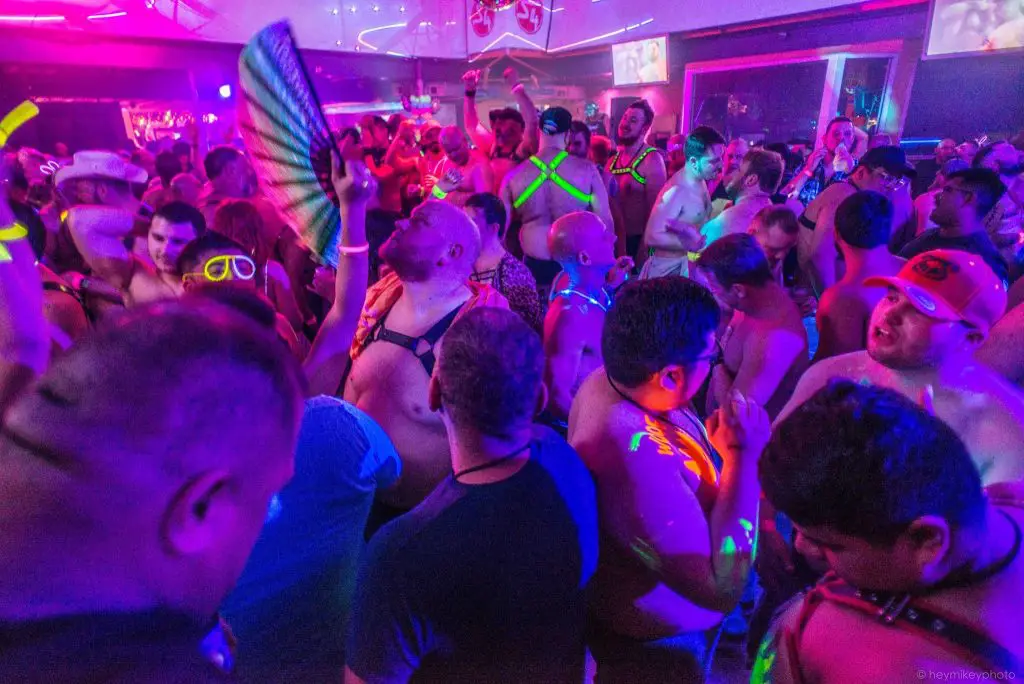

Houston, with its dynamic LGBTQ+ culture centered in the Montrose neighborhood, is a beacon of diversity in Texas. This area is not only pedestrian-friendly but also hosts the world’s largest Pride celebration and the Montrose Center, dedicated to serving the LGBTQ+ community. Additionally, publications like the “Houston Voice” and the “Montrose Star” cater specifically to LGBTQ+ interests in the city.
Yet, Texas offers a varied landscape of LGBTQ+ friendly cities, each with its distinct charm and community. Grand Prairie and McKinney, for example, are known for their inclusive environments and growing LGBTQ+ communities, offering suburban comfort with easy access to the amenities of larger cities. McAllen, in the Rio Grande Valley, boasts a vibrant, tight-knit LGBTQ+ community, with events that highlight the rich cultural diversity of the region.
Pasadena, blending traditional Texan culture with an evolving acceptance, offers a unique suburban experience. Further south, cities like Laredo and Brownsville are emerging as inclusive destinations, each fostering a welcoming atmosphere for LGBTQ+ residents and visitors. These cities showcase the blend of traditional Southern hospitality with a commitment to diversity and inclusion, making Texas a state with a rich tapestry of options for those seeking LGBTQ+ friendly communities.
To reduce the stress of your relocation, we recommend engaging a gay realtor in Texas early in the process to help you find your new perfect home there. They will have up-to-the-minute information on the best cities and areas for LGBT people and be able to match your needs to a neighborhood most suited to you.
You can just start with a no-obligation conversation, and if you decide to continue with your move to Texas – they will not only have your best interests at heart but also ensure you are treated with dignity and respect throughout the entire process.

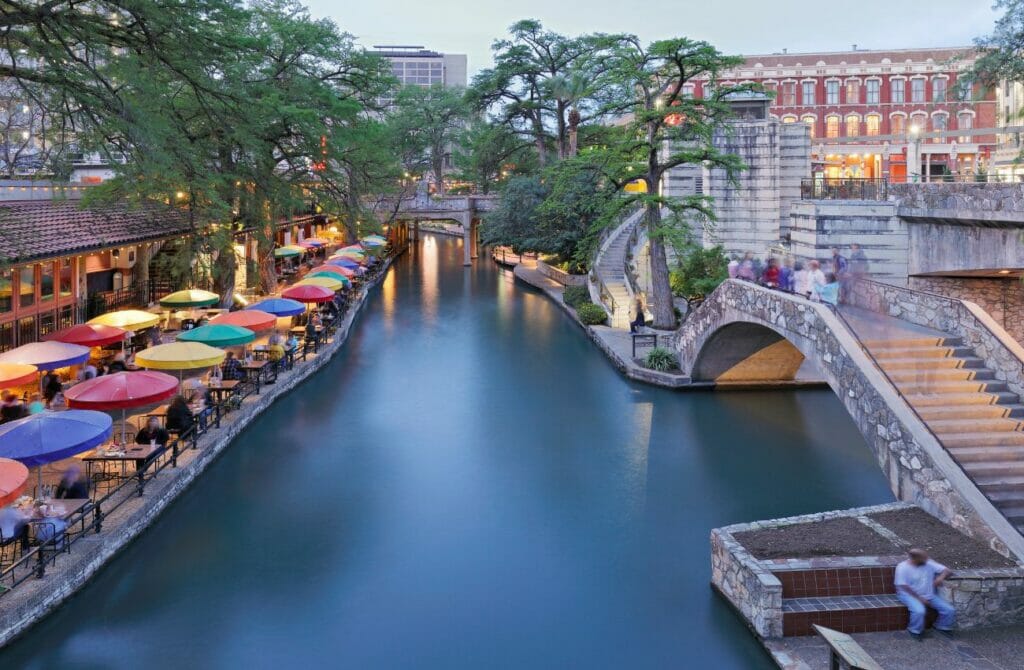
In this article we will cover...
Highlights Of Moving To Gay Texas
It’s hard not to get enthusiastic about the unique and tempting proposition that moving to Texas presents – especially once you get chatting with residents and long-time locals in the know about all their state’s hidden gems and best-kept secrets. After all, this is why many chose to live here.
Once you move here, you should quickly befriend locals, let them ‘spill the tea’ and then spend your free time discovering the best sights, food, nature and culture Texas has to offer. On top of this, thanks to an offbeat yet deeply engaged LGBT community – which congregates at a few fabulous queer hot spots – securing a relocation to Texas should allow you to meet local queer people with similar interests.
We are certain locals will have many more to add, but to get you excited, here are just a few highlights to look forward to as you become Texas’s newest denizen.
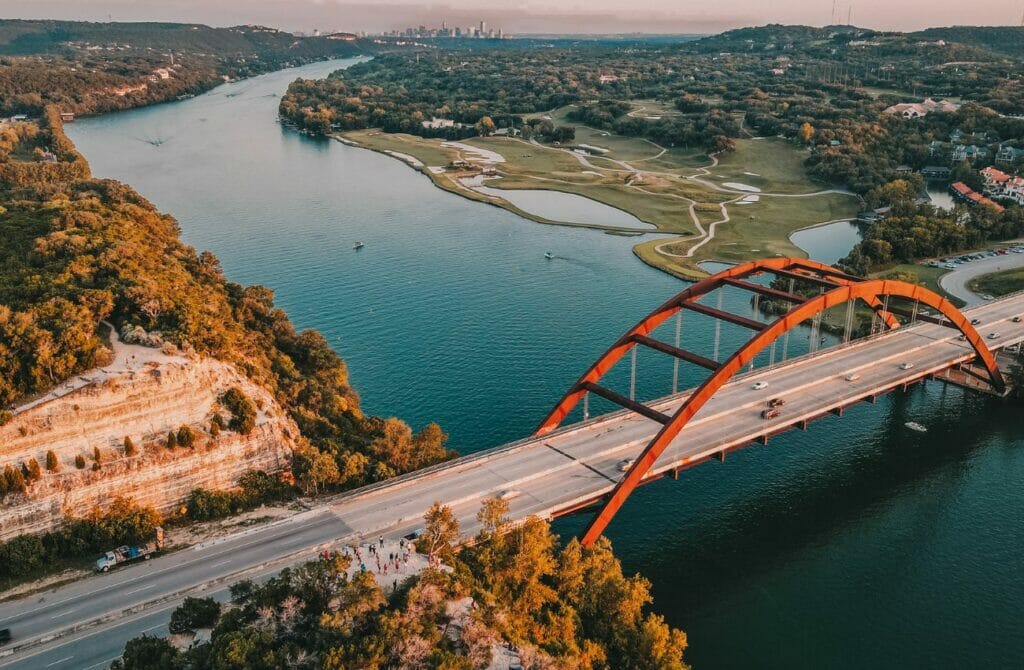
Robust and Diversified Economy
Texas has a strong and diversified economy, with major industries such as energy, technology, healthcare, and agriculture. The state is home to several major companies, such as ExxonMobil, Dell, and AT&T, and is also becoming an important center for startups and innovation.
Additionally, Texas has a low unemployment rate and is consistently ranked among the top states for job growth, making it a great place to start or further your career.
Rich Culture and History
Texas has a rich culture and history, with a diverse blend of influences from Mexican, Native American, and European cultures. The state is home to several historical sites and landmarks, such as the Alamo, San Jacinto Monument, and the Texas State Capitol. Additionally, Texas is known for its distinctive cuisine, music, and festivals, making it a great place to experience different cultures.
Great Climate
Texas has a great climate, with warm and sunny weather for much of the year. This makes it a great place to enjoy outdoor activities such as hiking, biking, and swimming, and also it is home to several beaches and lakes.
Affordable Cost of Living
Texas has a relatively low cost of living compared to other states, making it an affordable place to live. The state has a relatively low housing cost, which makes it an attractive place to buy or rent a home. In particular, Amarillo, Texas, mirrors this trend, offering remarkably affordable housing options and a cost of living that is well below the national average, making it an appealing choice for residents and newcomers seeking a budget-friendly lifestyle.
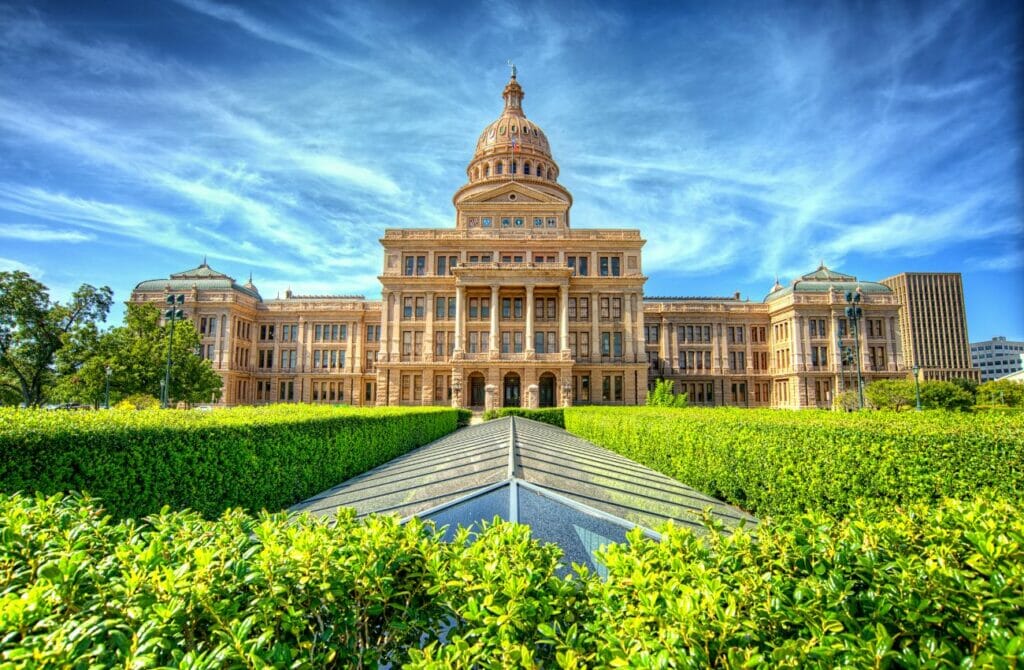
Growing Cities
Texas is home to several growing and vibrant cities, such as Austin, Houston, and Dallas, that offer a wide range of job opportunities, cultural activities, and entertainment. These cities are known for their diverse population, excellent dining and nightlife, and a growing tech scene.
Additionally, these cities have a relatively low cost of living compared to other major cities in the US.
Vibrant Nightlife
Houston, Austin, and San Antonio offer a range of clubs, bars, and other venues explicitly catering to the LGBTQ+ community, providing a vibrant nightlife and opportunities for the community to connect. In addition to significant pride events, these cities also have a range of events and activities specifically geared towards the LGBTQ+ community, such as social groups, meet-ups, and more.
LGBT Owned Businesses
Houston, Austin, and San Antonio all have several LGBTQ+-owned businesses, which contribute to the cities’ welcoming and inclusive atmospheres. These businesses may include restaurants, retail stores, and other types of businesses, and they can provide a way for LGBTQ+ individuals to support the community and the local economy.
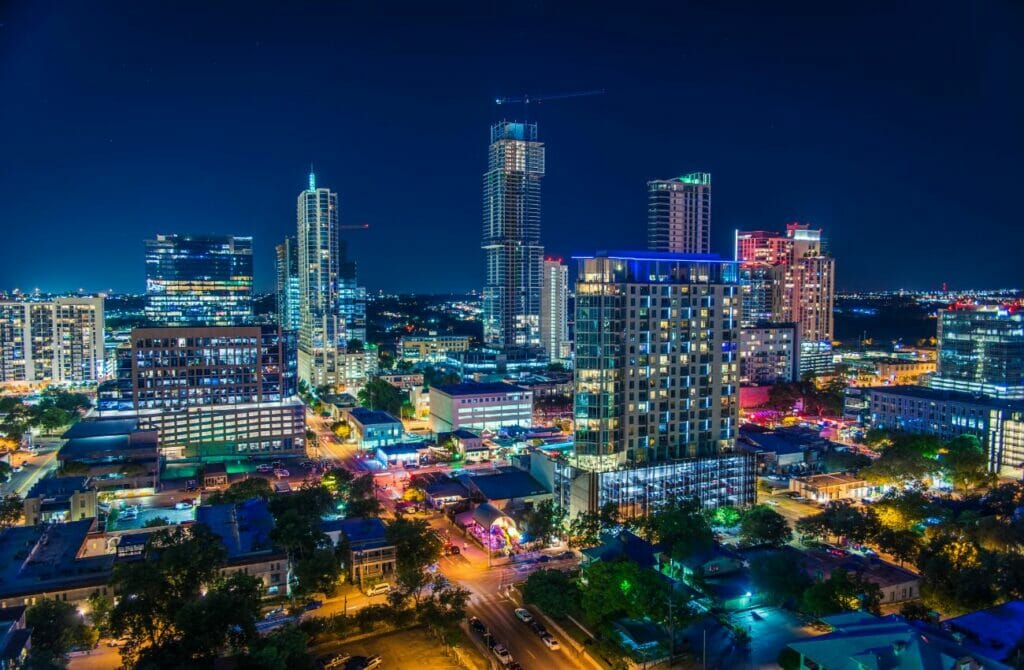
LGBTQ+ Rights In The USA
The laws governing lesbian, gay, bisexual, and transgender people have altered considerably over time in the United States and vary from state to state. In many ways, LGBT rights are some of the best in the world – but the devil is in the detail, and some places are much more hostile to queer life than others.
While same-sex marriage has been legal in every state since the landmark Obergefell v. Hodges ruling on June 26, 2015 (before Obergefell v. Hodges, same-sex marriage was legal in 36 states and Texas, D.C. ), LGBT people are still treated differently in different states – both societally and as inequality under the law.
Over half of all states still allow discrimination on the grounds of sexual orientation and gender identity/expression, while counties and cities within states often have distinct laws as well. While some states permit adoption by all couples, others forbid it for all unmarried couples.
This is all to say what most of us already know is that LGBT rights and equality differ greatly across the USA, and the specifics of family, marriage and anti-discrimination laws are different in every state.
Thus, while it is comforting to know that you can choose to marry whoever you love across the USA (and have it recognized as such) and are protected against hate crimes based on sexual orientation or gender identity (which can be punished under Matthew Shepard and James Byrd, Jr. Hate Crimes Prevention Act of 2009), there are still many questions you will likely have about moving to Texas and what you can expect of LGBT life there.
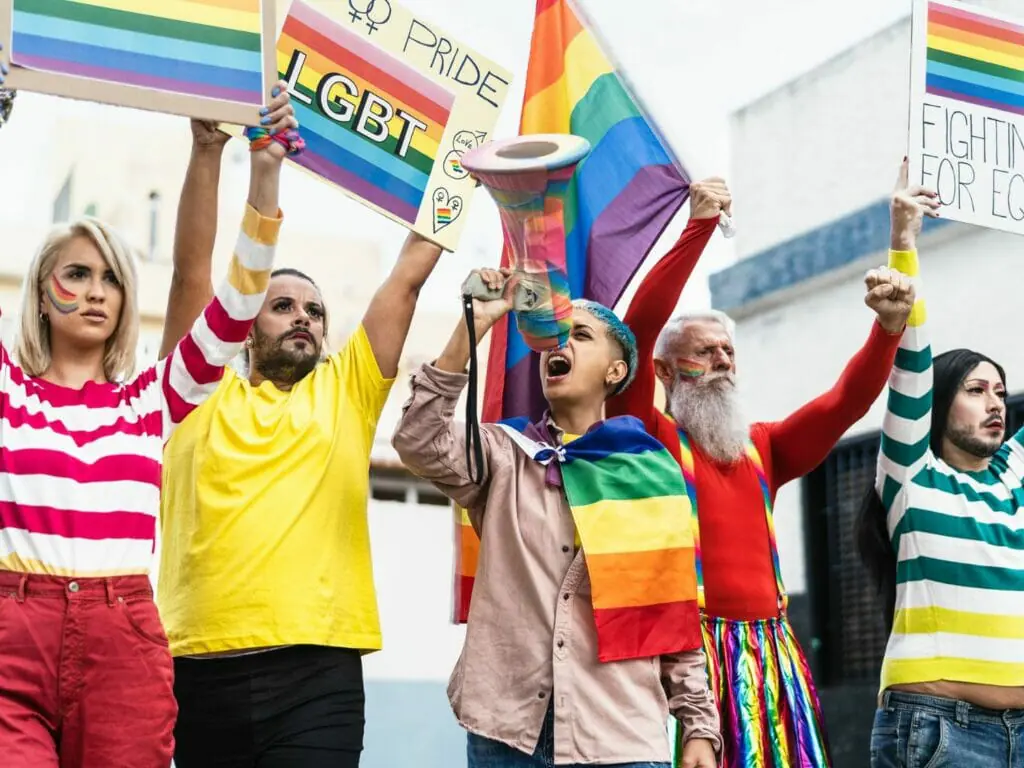
Does Texas Embrace The LGBTQ Community?
Texas has a somewhat complicated history when it comes to supporting and protecting the rights of its LGBTQ+ citizens. While the state does have nondiscrimination laws in place that protect LGBTQ+ individuals from discrimination in employment, housing, and public accommodations, several laws and policies can be harmful to the LGBTQ+ community.
For example, Texas prohibits local nondiscrimination ordinances, meaning that cities and towns within the state cannot pass laws protecting LGBTQ+ individuals from discrimination. Additionally, Texas has a history of refusing to recognize same-sex marriage, with the state’s ban on same-sex marriage not being struck down until 2015, when the nation’s Supreme Court ruled in favor of marriage equality.
Despite these challenges, several organizations and resources in Texas support the LGBTQ+ community and advocate for LGBTQ+ rights. These include the Human Rights Campaign, a national organization that promotes LGBTQ+ equality, and the Texas Freedom Network, a nonprofit that works to advance civil liberties and civil rights in Texas, including LGBTQ+ rights.
The Texas LGBTQ+ Chamber of Commerce is a business organization that promotes economic development and supports LGBTQ+-owned businesses in the state. In recent years, Texas has made some progress regarding LGBTQ+ rights.
Several cities within the state, including Austin, Dallas, and Fort Worth, have passed local nondiscrimination ordinances that protect LGBTQ+ individuals from discrimination in employment, housing, and public accommodations.
The U.S. Supreme Court’s ruling in favor of same-sex marriage in 2015 has also positively impacted the LGBTQ+ community in Texas. However, discrimination and other challenges still exist, and all stakeholders must do more work to ensure that all LGBTQ+ individuals in Texas can live openly and without fear of discrimination.
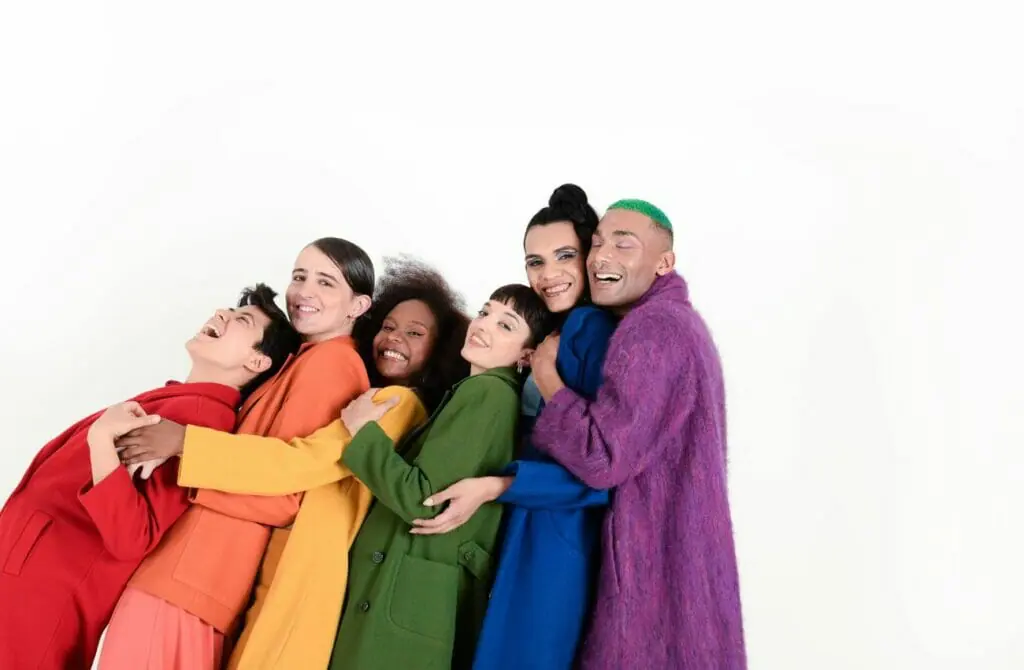

Is Texas an Expensive State to Move to?
Despite its many challenges, Texas is affordable, with a cost of living about 6% lower than the national average. Here is some more information about the cost of living in Texas to help you decide if it is the right place for you:
Housing
Housing in Texas is generally more affordable than the national average, with the average home costing around $241,000. However, prices may be higher in desirable areas such as Austin or Frisco, where you may need to spend upwards of $400,000 for a home. Rent is also relatively affordable, with the average apartment costing about $1,040 per month. Keep in mind that these prices can vary depending on location.
Food
A single person living in Texas should budget about $264 per month for groceries, while families with children should plan to set aside at least $603 per month for food. Remember that these estimates do not include dining out, which can be common in cities like Austin and Dallas due to their vibrant restaurant scenes. According to Business Insider, Texans spend an additional $221 per month on restaurant meals and regular grocery bills.
Utilities
Despite the high use of air conditioning in Texas, the state has lower energy costs than the national average and ranks 19th in the country for the cheapest utility bills. According to a recent study, the average American spends $422.08 on cable, water, electricity, and natural gas, while Texans pay an average of $409.78.
Transport
Transportation in Texas is about average in terms of cost. A car is generally necessary for the state, especially if you live outside a major city like Dallas or Austin. Texas gas prices are usually low, saving you about $146 per year. However, car insurance in the state tends to be more expensive than the national average, costing around $152 per month. You can expect to pay about $3,181 annually to use and maintain a car in Texas.
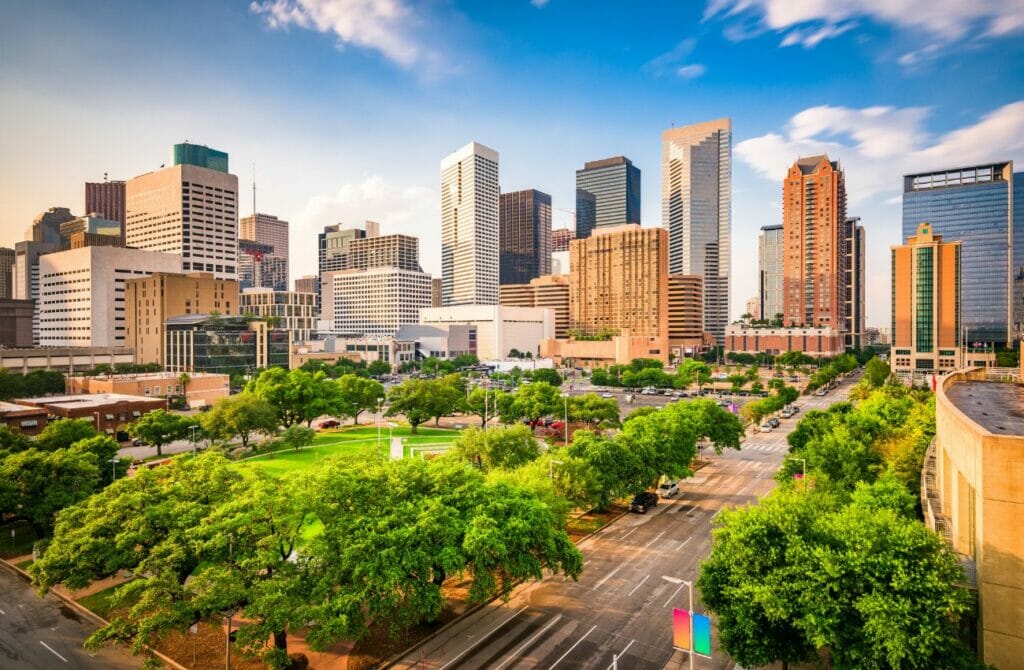
LGBTQ+ Community Organizations In Texas
Wherever you live, it is essential that you support LGBT organizations in any way you can use so that they can keep reaching out to and assisting other, more vulnerable members of the community. After all, we are stronger when we work together, and each of us will likely have a time in our lives when we require a little extra support.
Thankfully, Texas has a supportive and diverse LGBTQ community, which has helped the state become more gay-friendly in recent years.
As a result, there are a variety of LGBT resources available to community members, their allies, friends, and families – and you ought to feel free to utilize them or consider giving your support as needed to keep your new home state moving forwards! They are also great places to meet new people and find your queer chosen family in Gay, Texas.
Resource Center is a leading organization in North Texas that provides support and services to the LGBTQIA+ community and those living with HIV/AIDS. The organization operates one of the largest LGBTQIA+ community centers in the U.S., which hosts a variety of community organizations and serves over 60,000 people annually through its programs and services.
Resource Center has been advocating for these communities since its inception in 1983. This advocacy takes various forms, including collaborating with the government and schools to implement more inclusive policies and discussing policy and funding issues with state lawmakers. To stay informed on ways to get involved, you can join Resource Center’s mailing list or follow them on social media.
Transgender Education Network of Texas
The Transgender Education Network of Texas (TENT) is an organization that promotes diverse equality in Texas through education and networking. TENT aims to halt discrimination through education in both public and private forums.
Arttitude is a nonprofit organization that supports platforms for LGBTQIA+ people to express their diverse identities, histories, and communities through the arts.
The organization’s goal is to incite positive change and equality for all through artistic expression and to capture the narratives of marginalized communities. Arttitude brings together the creative community, academic researchers, and public and private advocacy organizations to inspire positive change for the future.
The House of Rebirth is a safe space and oasis for a transformative housing initiative led by Black trans people. The initiative aims to assist Black transgender women and nonbinary femmes adversely affected by intersecting oppression.
The House of Rebirth’s mission is to provide life-giving resources to under-served Black trans-identified women through transformative housing programs and to build power within intersecting LGBTQIA+ communities of color to spark sustainable change and solidarity.
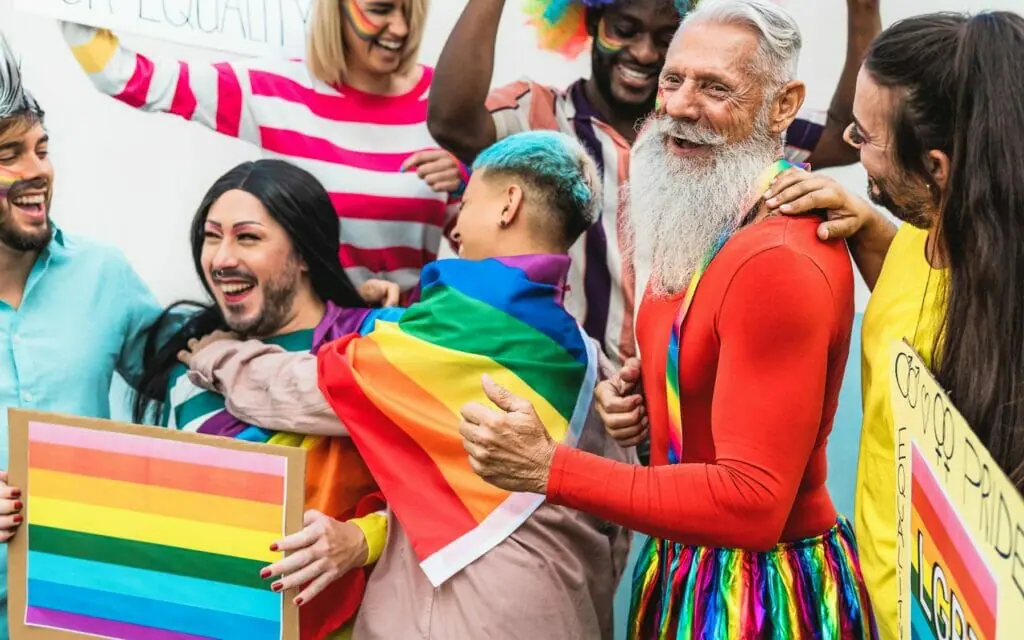
Most Gay-Friendly Cities In Texas
In Texas, there are many wonderful areas to live in, but when relocating to LGBTQ Texas, you should be cognizant that there are a few cities and gaybourhoods that are nearer to the queer hubs of life. Knowing them will allow you to pull your U-Haul up to your new house in a gay-friendly neighborhood or town that is best suited to your needs.
If you’re a lesbian, gay, bisexual, transgender, or otherwise queer person seeking a welcoming neighborhood with facilities you’ll cherish, start with these top gay and gay-friendly Texas cities to discover your perfect new home, each with its distinct personality.
Give yourself enough time to acquaint yourself with Texas’s diverse personalities, and remember that there is no one perfect answer when it comes to the most gay-friendly places in Texas…and just because it does not make our list doesn’t necessarily make it a bad option.
We recommend speaking to a local LGBT real estate agent for a more detailed understanding of the best options today. Now, let’s take a look at where these fabulously gay-friendly cities in Texas are and why you might want to consider them!
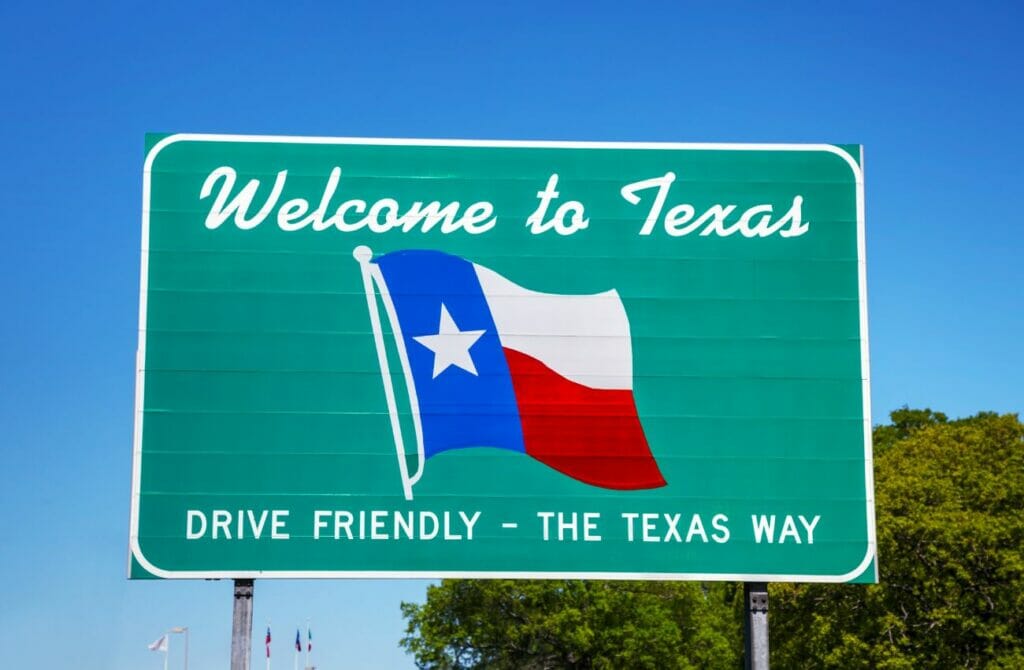
Austin
Austin is the nation’s fastest-growing big metropolis and an economic and cultural center. Silicon Hills is home to a variety of enterprises, drawing a diverse and bright crowd from around the U. S. Austin is well-known for its reputation as the globe’s live music capital, thanks to the eclectic music present throughout the city.
Austin residents are also well-educated. This is likely due to the city having the most bookshops per capita of any metro in the nation. The University of Texas draws students from all over the world, giving Austin a youthful vibe.
Austin is a popular tourist attraction for many LGBT people due to its progressive culture and welcoming people. With a sizable gay and lesbian population, Austin has a dynamic and busy gay scene comparable to that of a metropolis twice its size.
Because the LGBTQ+ community is interwoven throughout Austin, the city does not have a primary gay district. East Austin, on the other hand, is renowned as an LGBTQ hub due to its closeness to downtown, trails, hikes, restaurants, pubs, and nightlife. Downtown Austin has a variety of dining, entertainment, and nightlife options, including several LGBT clubs and bars.
The city is a nature lover’s paradise, an artist’s utopia, and a refuge for misfits. This city has it all, and the best way to get to know it is to get out and wander about.
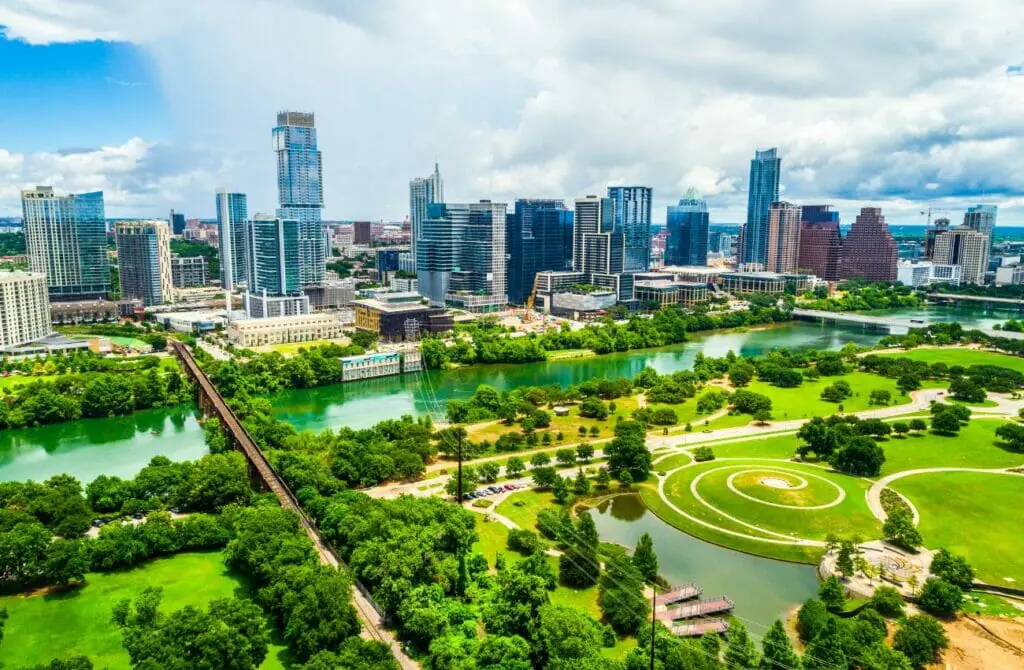
Corpus Christi
Corpus Christi is a beautiful city that provides a diverse range of cultures all in one location! The town, situated on the Texas coast, is a magnificent development inside and out. The scenery of the Gulf of Mexico from Corpus Christi and on the water is spectacular, as are the urban parks and general cityscape.
Corpus Christi is a fantastic tourist destination that any LGBTQ adventurer would love to explore. The Texas State Aquarium and the USS Lexington Museum are among the many sites that would capture your attention, and the Pharoah Valley area is a popular tourist destination. It is situated on Oso Bay and is widely known because of its bird-watching.
Most people are unaware that Corpus Christi boasts a beautiful cityscape. With fantastic dining options, individual sellers, live entertainment, and nightlife. Texas eateries are known for their delicious BBQ and southern-style cuisine. You can also find a few microbreweries in Corpus Christi. You might find the ideal beer in one of the city’s bars!
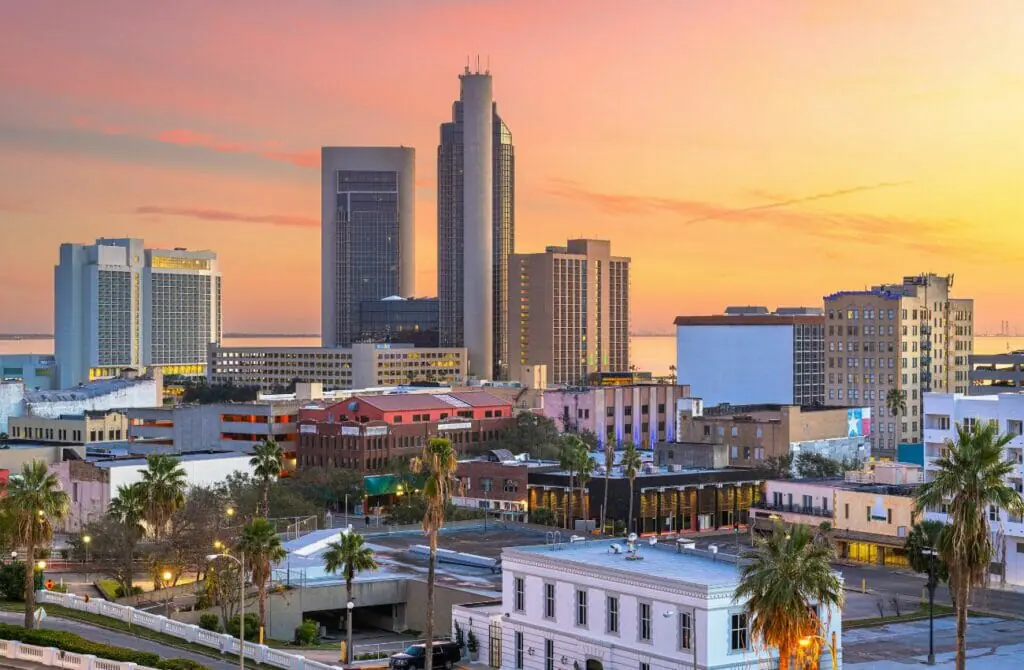
Dallas
Gay Dallas encompasses a lot of queer people. Dallas is a bustling cosmopolitan city with excellent museums, culture, and stunning people. The town has two vibrant LGBT communities, both of which are within minutes from downtown. There are many LGBTQ+ bars in the Oak Lawn district, but they are largely scattered.
Indeed, several gay clubs and pubs are within a short walk of the Cedar Springs strip. Summers in Dallas are often dry and warm. Temperatures in the triple digits are not uncommon. Winters are usually mild, with daytime temperatures ranging from the mid-50s to the mid-70s. Dallas is the city for you if you like things hot! Like most prominent cities in the U.S., the metropolis has a diverse transit system.
The metropolitan region is served by bike/walk, light rail routes, buses, a trolley network, and seven interstate routes. Whatever scene or desire you’re looking for, Dallas has it. On Friday and Saturday, celebrate at Dallas LGBT megachurch, the Cathedral of HopeTexans are pleased to say everything is grander in Texas.
A stop at “The Strip,” the hub of LGBT life on Cedar Springs Road, will let you precisely know what we mean. The entertainment places are massive! All establishments have at least one outdoor area. The concentration of the LGBTQ+ community is also highly convenient since you can park and visit multiple clubs throughout the night.
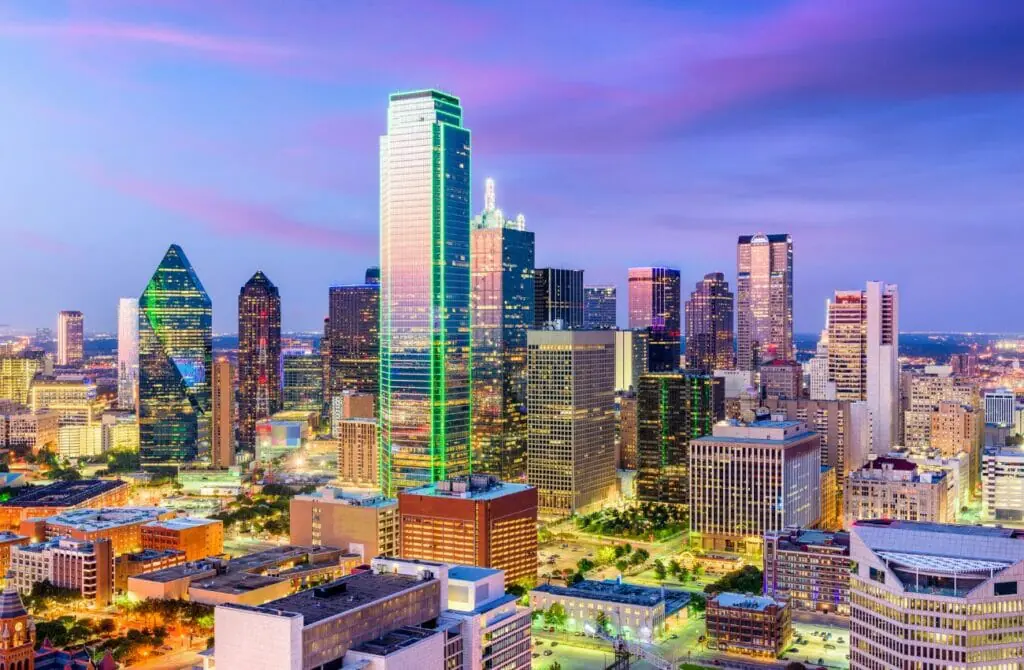
Finding Gay Realtors In Texas
When looking for the ideal realtor, why would you consider someone’s sexuality? This may seem strange at first, but there are several reasons why contacting a gay realtor in Texas is a great way to find your dream house.
After all, when it relates to one of life’s most significant transactions, it’s not unreasonable to expect fair, equal, and honest representation from someone who understands the queer community’s particular needs and wishes.
Furthermore, unfortunately, many people (up to a third of Americans) believe that our community does not deserve protection and dignity in housing, adoption, employment, and other areas of life.
So it’s no surprise that LGBT people who use mainstream realtors often describe feelings of discomfort, unnecessary trouble, unenthusiastic representation, or even antagonism or outright contempt.
Everyone deserves a pleasant, stress-free home buying or selling experience while being adequately represented, and this is why we feel you should hire a gay realtor to assist you in finding your future home.

LGBTQ realtors are more likely to be familiar with the diverse communities in their area and know which ones may be best suited to you when looking for a home.
That’s not to say a heterosexual realtor isn’t capable, but they’ve probably never had to address many of the issues LGBT people face.
Rather than just being concerned with how bustling, fashionable, or up-and-coming a neighborhood is (or what it may appear like), gay realtors conduct extensive research into the neighborhoods in which they sell homes to ensure that clients are safe.
It used to be challenging to locate professional LGBT-friendly real estate agents in Texas, and it was virtually impossible to find one if you were relocating here from out of state and didn’t have access to a local referral.
You no longer have to search for a realtor without knowing whether or not they are accepting of others because you can use a list of gay, lesbian, and gay-friendly agents in Texas to do all of your homework for you.
Simply go to the page, and you’ll be presented with a free list of gay, lesbian, and gay-friendly agents who can help you with your relocation, as well as other useful information like LGBT+friendly schools, shopping, storage firms, tradespeople, and more.
Read the biographies of LGBT real estate agents, then choose the one that is right for you. It’s critical that you find someone who will be by your side and support you and your family during one of life’s most exciting occasions.
Even better, there is no hidden motive, cost, or obligation whatsoever!

